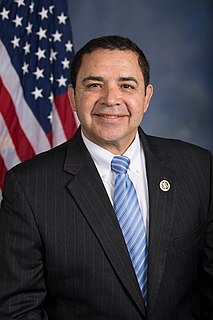A Quote by Rebecca MacKinnon
We like to think of the Internet as a border-busting technology.
Related Quotes
I don't think the criticism is fair. I think the criticism is assuming that Donald Trump giving up on something. He's not. I think if you do end up seeing - if you do end up seeing - some type of agreement regarding DACA and this massive-but-not-wall border security, talking about technology and people, all the things that we need to stop drugs and illegals from coming across the border. If that does become the framework for an agreement that does not mean the president's giving up on his priorities.
I'm a woman in technology, I think that we have to consider our border and use the technology we have to be sure that we secure it. If you build a six foot wall, somebody may jump eight feet. But, maybe there's surveillance... there's many high tech things that we can use to be sure we are protecting our borders.
I offered early on - I think I was governor about a month when I met President Obama - and said, 'I would like to visit with you in reference to border security, in reference to immigration. I'd like to be part of the discussion because I lived on the border all my life.' I've never received a call.
What we're doing is making sure that we have a safe and secure border region from San Diego all the way to Brownsville. And that means manpower, it means technology, it means infrastructure, it means interior enforcement. All, you know, kind of layered in appropriate ways, and making sure, like I said before, the border is safe and secure.
I think that the world is going to remain a very interconnected place. I don't think there's any getting away from that. The Internet has brought us closer together. I think cross-border trade is going to continue to grow substantially. I think there may be certain trade agreements that can be renegotiated, one way or another.
I think because of the iPhone and the fact that we now have a ubiquitous internet, our creativity in the startup space is 10 times different. Every single industry, every single market, is going to be technology-driven in some way. There's an infinite opportunity for startups because now you can go and solve problems that previously looked like they had nothing to do with technology.
Technology is something you have to embrace because technology is part of our generation. Digital natives, for instance, are people who grew up in a world that always had the Internet and who always had smartphones. Millennials aren't too far behind: my generation of people, who were in the mix of the Internet when it first came out.

































